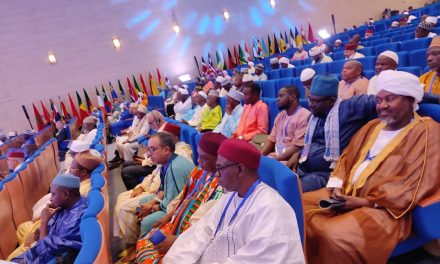
Marriage and Family In Islamic Perspective

Islam places much emphasis on the topic of marriage and family. Allah s.w.t. says in the Quran:
“O humanity! Be mindful of your Lord Who created you from a single soul, and from it He created its mate, and through both He spread countless men and women. And be mindful of Allah-in Whose name you demand (your rights) from one another- and family ties. Surely Allah is ever Watchful over you.”
(Surah An-Nisa, 4:1)
This verse informs us of the significance of family as one of the building blocks of humanity. By the creation of men and women and the sacred bond between the two genders from a lawful marriage, a family unit is built.
Such is Allah’s love and mercy to humankind. Towards the end of the verse, Allah s.w.t. reminds us that it is taqwa – (to be mindful of Allah) that guides spouses in threading the path of a blissful marriage.
In Islam, the concept of marriage (nikah) being the union of two sexes between male and female is consistent throughout the Quran. Such as the verse:
“And He created the pairs, male and female”
(Surah An-Najm, 53:45)
In another verse, Allah s.w.t. says:
“Those who guard their chastity. Except with their wives or their (bondwomen) in their possession, for then they are free from blame, but whoever seeks beyond that are the transgressors.”
(Surah Al-Mu’minun, 23:5-7)
All other forms of sexual partnerships, such as fornication, premarital, or same-sex sexual relationships, are therefore prohibited in Islam.
As a result, it is apparent that Islam’s perspective on sexual relations, sexuality, and gender identity differs from that of the LGBTQ+ movement, which supports same-sex marriages and the redefinition of unions and ’marriages’ that restrict the possibility of conception between couples.
The prohibition of such practises is not only expressed explicitly in the Quran and Hadith’s proscriptive pronouncements, but it has also met with documented universal agreement (Ijma’) between the Prophet SAW’s companions and their successors throughout the ages. Even with the decriminalisation of homosexuality, Muslims’ religious perspective on this topic remains unchanged.
Attempts have been made in recent decades to reinterpret Quranic texts in order to justify same-sex sexual relationships. It is worth noting that much has been elucidated on this subject not only in the Quran but also in the Hadith narrations of the Prophet S.A.W.
The blessed Prophet Lut, A.S., was sent to a community that largely accepted and observed same-sex sexual relationships, according to the Quran. According to the request for radical reinterpretation, the restriction in the story was actually referring to rape rather than a same-sex loving relationship.
To fully comprehend the Quran, one must read it from beginning to end. Among the various Quranic verses on this subject, Allah S.W.T. mentions Prophet Lut A.S. repenting for his people.
While the Quran does not mention a specific penalty for an act, this does not preclude it from becoming a violation. In fact, there are many activities that are obviously prohibited but are not linked to or stated with any consequences in the Quran. The act of incest is one example of this.
Another straightforward example is backbiting. Although there are no consequences listed in the Quran for backbiting, its prohibition is generally understood. In the Quran, Allah swt says:
“O believers! Avoid many suspicions, (for) indeed, some suspicions are sinful. And do not spy, nor backbite one another. Would any of you like to eat the flesh of their dead brother? You would despise that! And fear Allah. Surely Allah is (the) Accepter of Repentance, Most Merciful.”
(Surah Al-Hujurat, 49:12)
The concept of desires (nafs) is recognised in Islam. Desires are fundamental human characteristics. However, a crucial premise in Islam is that when desire s are not led by the human brain, they result in wrongdoing. The mere presence of urges or inclinations in Islam is distinct from and not similar to, or as blameworthy as acting on them.
A same-sex romantic attraction, like any other desire, can develop in an individual. However, because acting on it would be wicked, one should struggle to fight the desire rather than allowing it to dominate them. This is also true for other wants that are forbidden to be fulfilled, such as fornication and adultery. A desire for a romantic relationship with another person’s spouse, for example, is possible but should never be entertained or pursued.





























